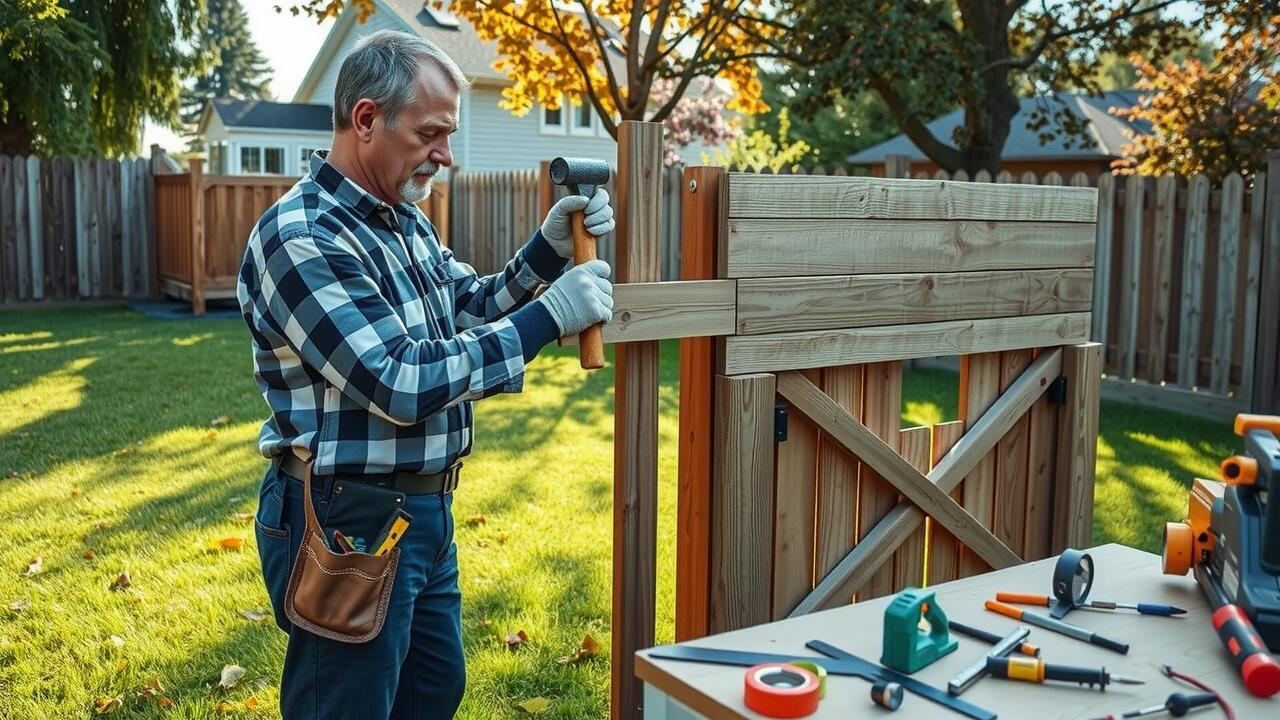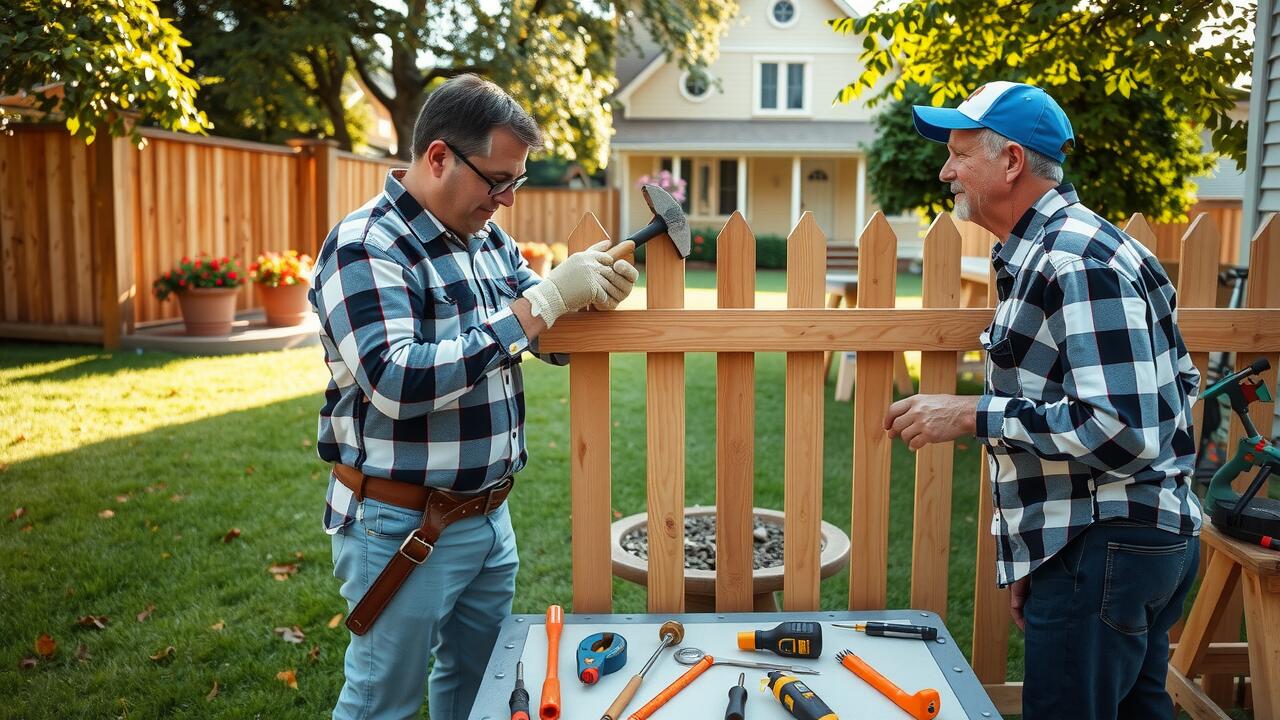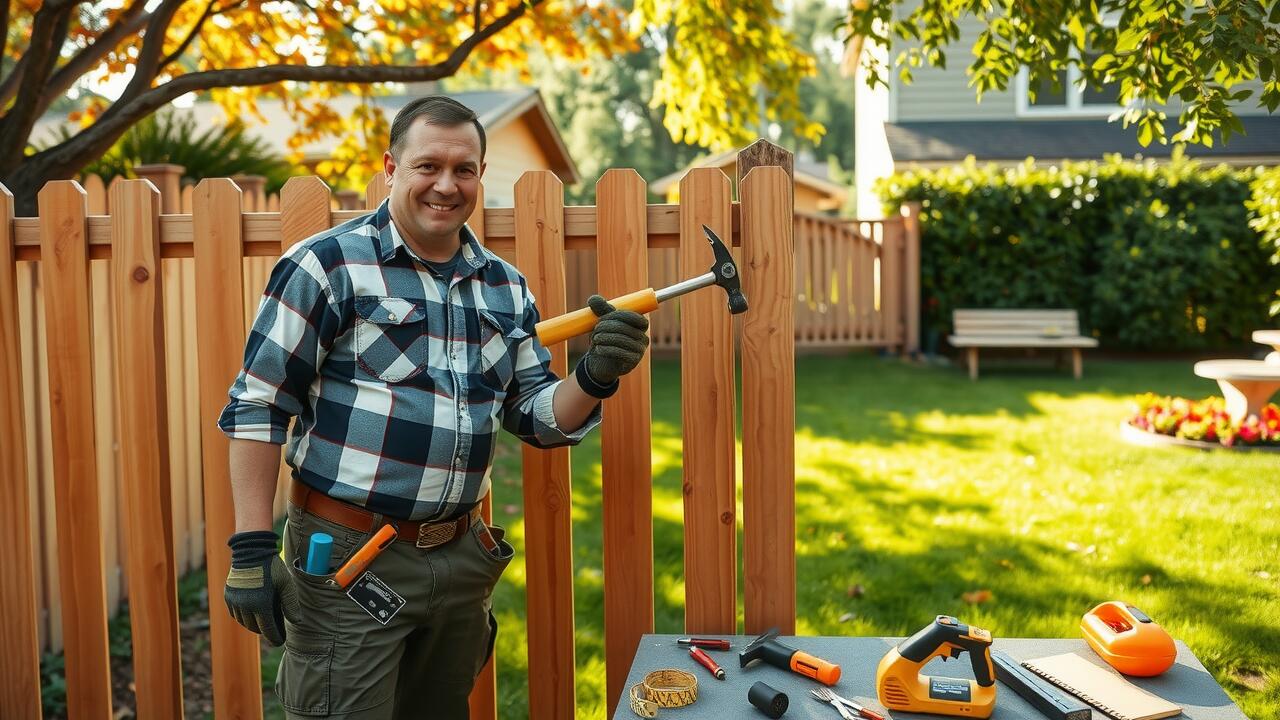
Table Of Contents
Communication with Your Neighbor
When considering a new fence or repairs, open communication with your neighbor is essential. Approach the conversation respectfully, outlining your reasons for wanting the fence and any necessary repairs. This dialogue can help both parties understand their perspectives. Discussing the purpose of the fence, whether for aesthetics, privacy, or security, sets a foundation for collaboration. If a fence repair is needed, explaining the urgency can also foster cooperation.
As discussions progress, it is vital to explore the potential costs associated with the fence. If both neighbors share the responsibility, determining how expenses will be shared should be addressed early on. This can prevent misunderstandings later. Blending honesty with a willingness to negotiate shows a commitment to maintaining a positive relationship, even when finances are involved.
Best Practices for Discussing Fence Costs
Initiating a conversation about fence costs with your neighbor can set the tone for a collaborative relationship. Begin by expressing your thoughts openly, ensuring that you listen to their perspective as well. Highlight the mutual benefits of maintaining a good fence, including the potential for increased property values and enhanced aesthetics. Discussing the need for fence repair can help frame the dialogue in a way that focuses on shared responsibilities rather than placing blame.
When discussing costs, it’s essential to remain transparent about your expectations and budget. Consider outlining possible options, from repairs to complete replacements, which may affect overall expenses. Emphasizing the importance of compromise can foster a more productive discussion, ensuring both parties feel heard and valued. Creating a written agreement after reaching a consensus can provide clarity and serve as a reference for both homeowners moving forward.
Resolving Disputes Over Fence Costs
When disputes arise over the costs associated with a fence, it is important to approach resolution thoughtfully. Open discussions often lead to better understanding between neighbors, especially when it comes to shared responsibilities. Many times, one party may suggest a compromise that takes into account the needs of both homeowners. If informal discussions fail, mediation can be a useful tool. A neutral third party can help facilitate a conversation where both sides express their concerns and seek a mutual agreement.
If mediation does not yield a satisfactory outcome, legal options are available. California law provides guidance on various aspects of fence construction and repair, including shared costs. Homeowners may need to review local ordinances to understand how their community addresses these issues. In some cases, the law may stipulate how much each party is responsible for in terms of new fence construction or fence repair, offering clarity in contentious situations. Understanding these legal frameworks can help in managing expectations and finding a resolution.
Mediation and Legal Options Available
When disputes arise regarding fence costs, mediation can be a constructive approach to finding a resolution. A neutral third party often facilitates these discussions, helping both neighbors express their concerns and needs. This process can lead to a mutually acceptable agreement without escalating tensions. It’s important to have all relevant documents and evidence, such as agreements or previous communications, on hand during these discussions.
If mediation fails to resolve the issue, seeking legal counsel may be necessary. Consulting a lawyer familiar with property and fence laws in California can provide clarity on your rights and obligations. Legal options may include filing a claim if one neighbor is unwilling to contribute to necessary fence repair costs. Understanding local laws will strengthen your position in negotiations or court proceedings.
The Role of Local Ordinances
Local ordinances play a crucial role in determining the regulations surrounding fence construction and repair in California. These regulations can vary significantly from one municipality to another. Many cities have specific guidelines on fence height, materials, and placement. Homeowners must adhere to these rules to avoid potential fines or disputes with their neighbors. Understanding the local laws is essential before undertaking any fence repair or building project.
Additionally, local ordinances may outline the responsibilities of property owners regarding shared boundaries. In some instances, this can influence who is financially responsible for maintaining or repairing a fence. For homeowners considering a fence repair, familiarizing themselves with these regulations can lead to smoother negotiations with neighbors and help prevent misunderstandings. Being proactive about local laws can foster better communication and more cooperative relationships within the community.
How City Regulations Impact Fence Building
City regulations play a crucial role in determining the type, height, and placement of fences on residential properties. Many municipalities have specific codes regarding these aspects to maintain aesthetic standards and ensure compliance with zoning laws. Homeowners must be aware of these regulations before undertaking any fence construction or repair. Not only can compliance with local ordinances avoid potential fines, but it can also foster good relationships with neighbors who may be affected by fencing decisions.
When it comes to fence repair, understanding city guidelines is equally important. Certain municipalities may require permits for extensive repairs or modifications. Homeowners should check local zoning laws to determine what is allowed, including the materials used and proximity to property lines. Engaging with local authorities can provide clarity, ensuring that any repairs align with community standards and legal requirements.
FAQS
Can my neighbor legally force me to pay for a fence in California?
No, your neighbor cannot legally force you to pay for a fence. However, California law does include provisions that may require shared responsibility for costs in certain circumstances, particularly if the fence is considered a boundary fence.
What should I do if my neighbor wants me to pay for a fence I didn’t agree to?
It’s best to communicate openly with your neighbor. Discuss the situation and your concerns. If you cannot reach an agreement, consider seeking mediation or legal advice to understand your rights and obligations.
Are there any local ordinances that might affect my obligation to pay for a fence?
Yes, local ordinances can impact responsibilities regarding fence costs and construction. It’s important to check with your city or county regulations to understand any specific requirements that may apply to your situation.
What options do I have if I cannot resolve a dispute with my neighbor over fence costs?
If direct communication fails, you can consider mediation to reach a mutual agreement. If that doesn’t work, you may have the option to pursue legal action, but it’s advisable to consult a lawyer before taking this step.
What are the best practices for discussing fence costs with my neighbor?
Approach the conversation calmly and respectfully. Be open to listening to your neighbor’s perspective and try to find a compromise that works for both parties. Document any agreements made in writing to avoid future misunderstandings.

